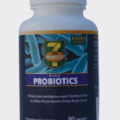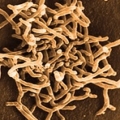Lactose Intolerance – An Overview
Lactose intolerance means the body cannot easily digest lactose, a type of natural sugar found in milk and dairy products. This is not the same thing as a food allergy to milk.
When lactose moves through the large intestine ( Colon ) without being properly digested, it can cause uncomfortable symptoms such as gas, belly pain, and bloating. Some people who have lactose intolerance cannot digest any milk products. Others can eat or drink small amounts of milk products or certain types of milk products without problems.
Lactose intolerance is common in adults. It occurs more often in Native Americans and people of Asian, African, and South American descent than among people of European descent.
A big challenge for people who are lactose-intolerant is learning how to eat to avoid discomfort and to get enough calcium for healthy bones.
Lactose intolerance occurs when the small intestine does not make enough of an enzyme called lactase. Your body needs lactase to break down, or digest, lactose.
Lactose intolerance most commonly runs in families, and symptoms usually develop during the teen or adult years. Most people with this type of lactose intolerance can eat some milk or dairy products without problems.
Sometimes the small intestine stops making lactase after a short-term illness such as the stomach flu or as part of a lifelong disease such as cystic fibrosis. Or the small intestine sometimes stops making lactase after surgery to remove a part of the small intestine. In these cases, the problem can be either permanent or temporary.
In rare cases, newborns are lactose-intolerant. A person born with lactose intolerance cannot eat or drink anything with lactose.
Some premature babies have temporary lactose intolerance because they are not yet able to make lactase. After a baby begins to make lactase, the condition typically goes away.
Probiotics for Lactose Intolerance
Probiotics could ease symptoms of lactose intolerance. Probiotics ( otherwise known as lactic acid bacteria) are live microorganisms, usually bacteria, that restore the balance of “good” bacteria in your digestive system. Probiotics when administered use indigested lactose for the fermentation process inside the human body .
Usually a combination of Lactobacillus and Bifidobacterium in the form of capsules or powder may help to get relief from lactose intolerance.



